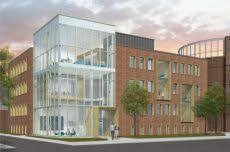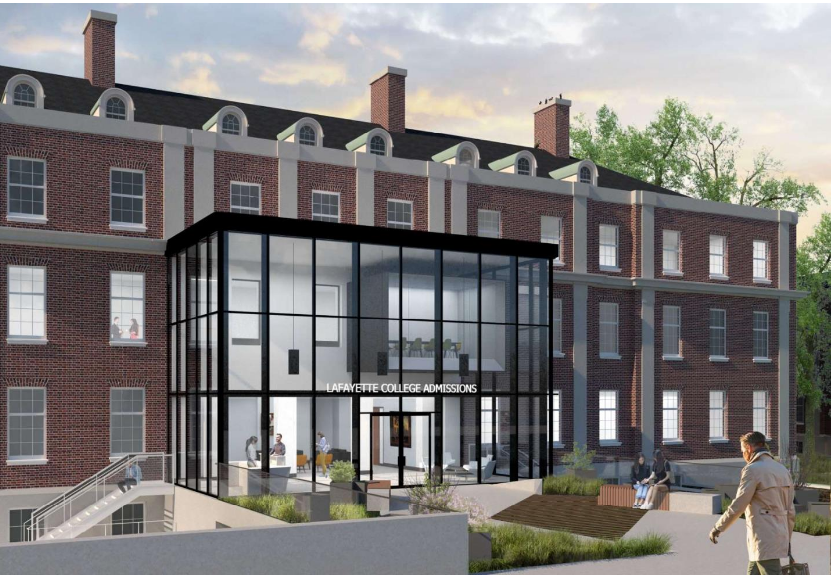Markle Parking Deck to be replaced; Kunkel renovations on hold
By Mark Eyerly
The 39-year-old two-story Markle Parking Deck will have a slightly larger footprint and will add an additional level. The project will be complete by August 2022 and will add 228 parking spaces under plans approved by the Board of Trustees at its Feb. 26 meeting. Demolition of the existing deck will begin at the end of the fall 2021 semester.
The existing Markle Deck is safe but showing excessive wear from delamination, road salt, and UV rays, requiring more extensive repairs year after year, Roger Demareski, vice president for finance and administration, told the board. Full repairs to the existing facility would cost $5 million and extend the deck’s life by only a few years. Given advances in parking-deck engineering and construction, the most cost-effective move is to replace the facility, Demareski said.
Plans for temporary parking arrangements while the deck is under construction may include remote parking linked with the campus shuttle system or additional temporary parking lots.
The top level of the new facility will include designated parking for visitors and admissions and will provide direct access into Markle Hall, where a new admissions entrance will greet prospective students and their families. The admissions entrance will be funded by a $2 million gift to the College from the Hugel Family; the new parking deck will cost $10 million and will be funded through conventional financing.
 Design work is complete for renovations to Kunkel Hall, which is slated to become the new home for the Department of Economics, but the actual work is on hold pending a fuller assessment of the impact of the current crisis on College finances over the coming two years.
Design work is complete for renovations to Kunkel Hall, which is slated to become the new home for the Department of Economics, but the actual work is on hold pending a fuller assessment of the impact of the current crisis on College finances over the coming two years.
Design work is proceeding on renovations to Rinek Rope Works, which will include space for environmental and conservation research and hands-on projects; a civil engineering “maker space”; space for the facilities operations team; and a substation for the Easton Emergency Squad and the student-organized Lafayette EMS group. The College has been awarded $1 million in state funding for the project.
